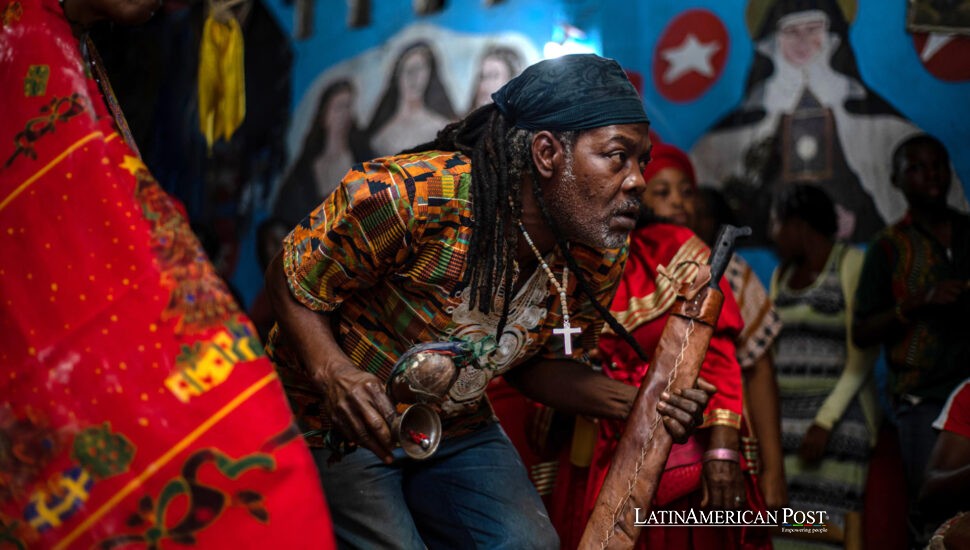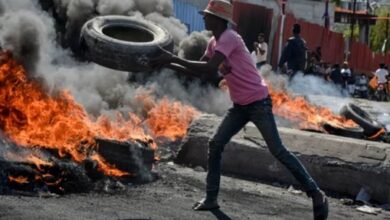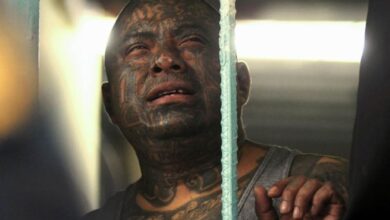Haiti’s Voodoo Reclaims Center Stage in National Turmoil

Haiti faces continued political, social, and economic problems. Many citizens again find voodoo a source of spiritual safety. Because of violence displacement next to uncertainty, a number of people now seek the old laws for direction and recovery, in addition to safety in a troubled country.
A Renewed Quest for Spiritual Shelter
Haiti has experienced many difficulties. Political instability has increased in recent years. The violence occurred without constraint, and the economy worsened. This economic crisis continues to displace families throughout the country. Many Haitians lost their homes. People also lost how they made a living. They lost their feeling of safety. According to figures from the International Organization for Migration (IOM) published in 2024, more than one million people—around nine percent of the country’s population—have been displaced by violence. In 2024 alone, over 5,600 people were killed, 2,212 injured, and 1,494 kidnapped, according to a United Nations report released in January 2025.
In the face of these grim realities, voodoo temples across Haiti have experienced an unprecedented surge of visitors seeking relief from constant fear. With nowhere else to turn, many cling to voodoo’s promise of intercession by the loas—spirits acting as intermediaries between the living and their ancestors. “Politicians have failed us, and traditional religious leaders have failed us,” says Augustin St-Clou, also known as “Le Roi Vudú” (The Voodoo King), in an interview with EFE. “Now, the loans are our last line of defense.”
This renewed faith in voodoo arises not only from desperation but also from deep cultural roots. Voodoo came from a combination of West African beliefs, Catholicism as well as local customs. It suffered persecution for many years. Political powers and some religious organizations tried to eliminate it, but it still is a lasting part of Haitian culture and past. The current difficult situation only showed its spiritual power.
Historic Roots and Persecuted Faith
Voodoo began during slavery in the Caribbean. Enslaved Africans had to conceal their cultural and religious actions. With time the beliefs and rituals joined the prevalent Catholic symbols around them. A combined faith both old plus flexible, developed. From the Haitian Revolution of 1791—sparked in part by a clandestine voodoo ceremony in Bois Caïman—to modern-day spiritual gatherings, voodoo has long served as both a unifying force and a focal point of resistance.
Still, persecution has followed it relentlessly. During the Duvalier dictatorships—first under François “Papa Doc” Duvalier and later under his son, Jean-Claude “Baby Doc”—voodoo was manipulated to intimidate political enemies. “Papa Doc” even fashioned himself as Baron Samedi, the loa of death, and employed ritualistic imagery to instill fear across the land. Many houngans (priests) and mambos (priestesses) were co-opted to become part of the Tonton Macoutes, the dreaded paramilitary group that enforced Duvalier’s will.
However, not all voodoo practitioners supported these acts. “Some indeed used voodoo for evil, but you can’t blame the religion itself,” Le Roi Vudú reflects, crediting EFE for the interview. “It was men who corrupted it. Voodoo stands for community and survival.”
For centuries, Haitian politicians have vacillated between forbidding voodoo, exploiting it for control, or tentatively seeking alliances with influential leaders within its hierarchy. Occasionally, voodoo has been recognized for its influential reach as it continues to shape communal ties and local governance. Even following Haiti’s official recognition of voodoo as a religion in 2003, prejudice and apprehension remain. People burned churches. People excluded practitioners. Centuries-old rituals went into hiding. For voodoo, the ability to change when facing continuous hardship became a foundation of cultural identity.
Political Power and the Legacy of Control
Political realities often interweave with spiritual life in Haiti, sometimes in surprising ways. The faith that many see as a purely mystical or cultural force has also proven itself a potent political instrument. Throughout Haitian history, voodoo has been invoked not only to rally liberation movements—like the 1791 Revolution—but also to legitimize authoritarian rule. This double nature reveals the intricate ties between voodoo and Haitian leaders.
During the Duvalier period, voodoo symbols had a great influence on the government, promoting its power and maintaining control. Papa Doc gained notoriety through his dark glasses and his portrayal of Baron Samedi. This action obscured the separation between government authority plus spiritual fear. “He used the religion to terrorize people,” says a community organizer in Carrefour, who asked to remain anonymous. “Those were dark times, but it doesn’t mean voodoo is inherently dark.”
Political entanglements did not end with the Duvaliers. In August 2021, for instance, civil society leaders proposed the Montana Accord as a blueprint for restoring order after the assassination of President Jovenel Moïse. Voodoo representatives were among those helping shape the proposal. “The Montana Accord isn’t just political; it’s about building Haiti from its roots,” says another leader who declined to be named. “Voodoo is one of those roots.” Although the Accord was never implemented—later overshadowed by a Transitional Council (CPT) backed by CARICOM—this episode reaffirmed that voodoo remains central if sometimes unseen, power structure in Haitian society.
Today, with Haiti facing a severe crisis again, many adherents wish to see their faith freed from the shadow of political machinations. “We want to reclaim our religion from the politicians,” Le Roi Vudú tells EFE. “Let voodoo return to what it has always been: a wellspring of hope and a shield for our people.”
Ceremonies of Community, Healing, and Revelation
The rhythm of traditional Haitian drums resounds in a modest temple in Carrefour, near the bustling Gressier neighborhood of Port-au-Prince. Smoke from incense coils under the high ceiling, mingling with the scent of melting candles. Devotees, dressed in white tunics and vibrantly colored skirts or headscarves, gather around the poto mitan, the sacred post connecting earthly realms to the spiritual world. Their voices rise in unison, singing in Haitian Creole, proclaiming that “even if they hate us, they cannot destroy us because voodoo is who we are.”
During these ceremonies, participants open themselves to the possibility of possession, wherein a loa takes over a devotee’s body to dispense guidance, healing, or prophecies. One woman, known only as Marguerite, recalls how a ritual led to her kidnapped son’s rescue. “The loas showed me in dreams that my son was alive,” she shares, her voice trembling with emotion in an interview credited to EFE. “A few days later, we found him in a neighborhood far from here,” Marguerite said. The protective warrior loa Ogou was invoked through vevès (sacred symbols drawn with flour or ash) and gunpowder.
Each loa within voodoo presides over different aspects of life: Ezili Dantò is tied to motherhood and fierce feminine power; Agwe is associated with the sea; Baron Samedi, with cemeteries and the afterlife; and Simbi, with knowledge and magic. Depending on the loa invoked, ceremonies vary in color, offering, and intent. For instance, participants might wear red and black if they wish to call upon Baron Samedi or weave strings of blue beads for Agwe ceremonies. “A healing ritual can last hours,” says Augustin Montès, a houngan from Jacmel, speaking to EFE. “It depends on which spirit comes. Some need rum, others tobacco, still others a chicken’s blood.”
Many see these practices as vital lifelines in an environment where violence and upheaval have grown as common as the scorching sun. When police stations are shuttered, government offices are paralyzed, and medical services are overwhelmed, the community itself becomes the first refuge. People find only voodoo offers actual help. It gives comfort to the mind and a feeling of community when life is confusing.
The Future of Voodoo in a Struggling Nation
Beyond spiritual guidance, voodoo also fulfills a profound therapeutic role in Haitian communities. With public hospitals often in disarray—some closing entirely due to a lack of funding—houngans and mambos have stepped in to help treat ailments using a blend of herbal knowledge, ritual purification, and spiritual intercession. “I couldn’t afford a doctor,” says Macson, a merchant who requested that EFE keep his last name private. “But the houngan in my neighborhood healed me with herbal infusions and a ritual.”
Macson recounts being hospitalized in Port-au-Prince’s General Hospital for prostate cancer in 2024. When the hospital was forced to shutter its wards, Macson was discharged without completing chemotherapy. Left with no alternatives, he turned to a local houngan. “The pain that stopped me from walking just vanished,” he claims. Though unverified by formal medical studies, his story resonates in a nation where desperation often forces people to embrace any available solutions—particularly those rooted in centuries-old healing traditions.
Similarly, Jean-Baptiste Lormé recounts taking his son Patrick—who suffers from mental health issues—to a houngan in Croix-des-Bouquets when medication became inaccessible. “It was our last resort,” he tells EFE. “They performed a spiritual cleansing and gave him an herbal infusion. He isn’t cured, but I see small improvements.” While acknowledging that voodoo remedies do not replace psychiatric treatment, Lormé says any sign of relief is invaluable in a country where pills and professional care are increasingly scarce luxuries.
Voodoo temples, known as hounfò, sometimes function as makeshift health centers or communal kitchens, distributing what they can to neighbors in need. Throughout Haitian history, these spaces have offered more than spiritual solace; they are places of communal gathering, cultural expression, and intergenerational knowledge transfer. “When the spirits guide us, they tell us which plants to use,” explains Renée Dumas, a mambo from Carrefour, speaking to EFE. She holds a bottle of murky liquid, which she claims is a potent remedy for fevers. “It isn’t magic; it’s ancestral knowledge,” she adds.
Voodoo faces political and societal problems as well, and its role is both secure and controversial. Some Christian groups continue to blame voodoo for promoting superstition or illicit actions. The religion’s followers say that misunderstandings result from past oppression plus false information. For them, voodoo is prayer, dance, and drumming next to herbal medicine – it shows resilience created through past difficulties.
As Haiti grapples with an uncertain future, the question remains: how does voodoo fit into the modern narrative? Many practitioners advocate for greater acceptance and official support, citing voodoo’s potential as a community-driven mechanism of social welfare and collective organizing. Others fear increased exploitation if politicians again see voodoo’s influence as a means to power. For now, voodoo’s role appears multifaceted—a deeply personal refuge and a wider community network buttressed by faith.
The return of voodoo as a place of spiritual safety tells a lot about Haitian culture and the will to live. Through many years of mistreatment, natural problems as well as social trouble, Haitians looked to the spirits for power. In a time of political problems and economic difficulty today, that dependence is easier to see, plus more needed. Whether individuals seek healing, discover a kidnapped loved one’s whereabouts, or simply find solace in the drums and chants of the midnight ceremony, voodoo offers more than ritual—it provides a sense of belonging.
Also Read: Dominica Transforms Volcano Heat Into A Bold Green Energy Revolution
“Haitians see in voodoo the reflection of our resilience,” concludes Le Roi Vudú, referencing his interview with EFE. One can destroy places of worship – however, the belief remains. Within that statement is protection for the right to practice religion. With it comes a request to consider more than common ideas and to value the deep role of voodoo in Haitian culture. As the crisis deepens and new challenges arise, the beating heart of voodoo continues to sound—reminding Haiti and the world that when institutional structures fail, collective faith can still light a path forward.




